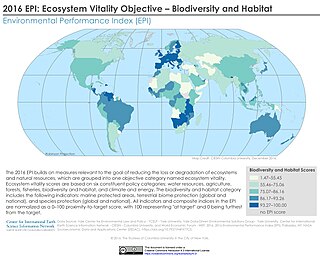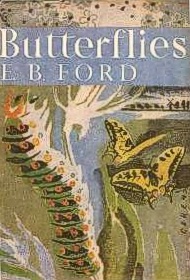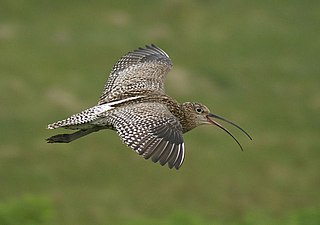Related Research Articles

Sir Peter Markham Scott, was a British ornithologist, conservationist, painter, naval officer, broadcaster and sportsman. The only child of Antarctic explorer Robert Falcon Scott, he took an interest in observing and shooting wildfowl at a young age and later took to their breeding.

Wildlife refers to undomesticated animal species, but has come to include all organisms that grow or live wild in an area without being introduced by humans. Wildlife was also synonymous to game: those birds and mammals that were hunted for sport. Wildlife can be found in all ecosystems. Deserts, plains, grasslands, woodlands, forests, and other areas, including the most developed urban areas, all have distinct forms of wildlife. While the term in popular culture usually refers to animals that are untouched by human factors, most scientists agree that much wildlife is affected by human activities. Some wildlife threaten human safety, health, property, and quality of life. However, many wild animals, even the dangerous ones, have value to human beings. This value might be economic, educational, or emotional in nature.

Conservation biology is the study of the conservation of nature and of Earth's biodiversity with the aim of protecting species, their habitats, and ecosystems from excessive rates of extinction and the erosion of biotic interactions. It is an interdisciplinary subject drawing on natural and social sciences, and the practice of natural resource management.

David James Bellamy was an English botanist, television presenter, author and environmental campaigner.

James Maxwell McConnell Fisher was a British author, editor, broadcaster, naturalist and ornithologist. He was also a leading authority on Gilbert White and made over 1,000 radio and television broadcasts on natural history subjects.

The New Naturalist Library is a series of books published by Collins in the United Kingdom, on a variety of natural history topics relevant to the British Isles. The aim of the series at the start was: "To interest the general reader in the wild life of Britain by recapturing the inquiring spirit of the old naturalists." An editors' preface to a 1952 monograph says: "An object of the New Naturalist series is the recognition of the many-sidedness of British natural history, and the encouragement of unusual and original developments of its forgotten or neglected facets."
Richard Thomas Mabey is a writer and broadcaster, chiefly on the relations between nature and culture.
Richard Sidney Richmond Fitter was a British naturalist and author. He was an expert on wildflowers and authored several guides for amateur naturalists.
The British Naturalists' Association (BNA), founded in 1905 by E. Kay Robinson as the British Empire Naturalists' Association (BENA), is an organization in the United Kingdom to promote the study of natural history. It publishes a journal called Country-side.

Christopher Gary Packham CBE is an English naturalist, nature photographer, television presenter and author, best known for his television work including the CBBC children's nature series The Really Wild Show from 1986 to 1995. He has also presented the BBC nature series Springwatch, including Autumnwatch and Winterwatch, since 2009.
Chris Baines is an English naturalist, one of the UK's leading independent environmentalists. He is a horticulturalist, landscape architect, naturalist, television presenter and author.

Robert Michael Pyle is an American lepidopterist, writer, teacher, and founder of the Xerces Society for Invertebrate Conservation. Much of his life story is told in the 2020 feature film The Dark Divide, where Pyle is played by David Cross.
Nature writing is nonfiction or fiction prose or poetry about the natural environment. Nature writing encompasses a wide variety of works, ranging from those that place primary emphasis on natural history facts to those in which philosophical interpretation predominate. It includes natural history essays, poetry, essays of solitude or escape, as well as travel and adventure writing.
Sir Norman Winfrid Moore, 3rd Baronet was a British conservationist and author who worked extensively on studies of dragonflies and their habitats and was one of the first people to observe and warn of the adverse effects of DDT and other organochlorine pesticides on wildlife. The Independent described him in his obituary as one of the most influential figures in nature conservation in the second half of the 20th century.
Bruce Campbell was an English ornithologist, writer and broadcaster, closely associated with the British Trust for Ornithology (BTO).

Peter Taylor is a UK environmentalist, public activist on issues ranging from nuclear safety, ocean pollution, biodiversity strategies, renewable energy and climate change. He is the author of five books: Beyond Conservation: A Wildland Strategy (2005), Shiva's Rainbow, Chill: A Reassessment of Global Warming Theory (2009), Questions of Resilience: Development Aid in a Changing Climate (2010), and Rewilding: ECOS Writings on Wildland and Conservation Values (2011).

Meathop Moss is a raised bog located north of Meathop in Cumbria, England. Protected as a nature reserve by the Cumbria Wildlife Trust, Meathop Moss is notable for its insect life. In 1965 it was designated a Site of Special Scientific Interest under the National Parks and Access to the Countryside Act 1949. Along with two other raised bogs near the Kent estuary, it has been included in the Witherslack Mosses Special Area of Conservation which was designated in 2005.
Franklyn Hugh Perring PhD, OBE was a British naturalist, regarded as "one of the most influential botanists and nature conservationists of the 20th century".

Mary Colwell is an environmentalist and freelance producer and author. She previously worked for the BBC Natural History Unit.
Dara McAnulty is a Northern Irish naturalist, writer and environmental campaigner. He is the youngest ever winner of the RSPB Medal and received the Wainwright Prize for UK nature writing in 2020 after being the youngest author to be shortlisted for the award. He is also the youngest author to be long-listed for the 2020 Baillie Gifford Prize for non-fiction and for the shortlist for the 2020 Books Are My Bag Readers' Awards, which he won in the non-fiction category
References
- 1 2 "Board of Governors". Kemerton Conservation Trust. Retrieved 11 March 2022.
- ↑ Marren, Peter (2016). Where the Wild Thyme Blew: Growing Up with Nature in the Fifties and Sixties. Pisces Publications. ISBN 978-1-874357-76-6 . Retrieved 11 August 2022.
- ↑ Barkham, Patrick (1 December 2018). "Guardian best books of 2018: across fiction, politics, food and more". The Guardian. Retrieved 11 March 2022.
- ↑ Lewis-Stempel, John (25 July 2015). "A flashy life that's over in an instant; Butterflies have found a champion". The Times.
- ↑ Avery, Mark. "Sunday book review – Rainbow Dust by Peter Marren". Mark Avery. Retrieved 11 March 2022.
- ↑ Waugh, Sophia (24 July 2015). "Rainbow Dust: Three Centuries of Delight in British Butterflies by Peter Marren". The Telegraph. Retrieved 11 March 2022.
- ↑ Morley, Caroline. "How to save the wild, one local patch at a time". New Scientist. Retrieved 11 March 2022.
- ↑ McCarthy, Michael (14 November 2012). "The greatest book about mushrooms you'll ever read". The Independent. Retrieved 11 March 2022.
- ↑ Miéville, China (12 June 2010). "Bugs Britannica by Peter Marren, edited by Richard Mabey". The Guardian. Retrieved 11 March 2022.
- ↑ "Research Fellowships 2008". Leverhulme Trust. Retrieved 13 March 2022.
- ↑ "Society for the History of Natural History Book Prize". Society for the History of Natural History. Retrieved 12 March 2022.
- ↑ "BSBI/WFS Presidents' Award". BSBI/WFS Presidents’ Award. Retrieved 12 March 2022.
- ↑ Barkham, Patrick. "Best Nature Books of 2020". The Guardian. Retrieved 11 March 2022.
- ↑ Clarke, Pilita (23 May 2022). "Best new books on climate and the environment". Financial Times. Retrieved 1 October 2022.
- ↑ "Peter Marren: The Independent". The Independent. Retrieved 11 March 2022.
- ↑ "Peter Marren: The Guardian". The Guardian. Retrieved 11 March 2022.
- ↑ Marren, Peter. "Professor Oliver Rackham: Botanist and expert on historic trees and ancient woodland whose work inspired a generation of conservationists". The Independent. Retrieved 11 March 2022.
- ↑ Marren, Peter (4 January 2020). "David Bellamy: Botanist and campaigner who became an unlikely household name". The Independent. Retrieved 11 March 2022.
- ↑ Marren, Peter (15 August 2018). "Hugh Synge obituary". The Guardian. Retrieved 11 March 2022.
- ↑ Marren, Peter (13 September 2007). "Eva Crane Authority on the history of beekeeping and honey-hunting who travelled the world in pursuit of bees". The Independent. Retrieved 11 March 2022.
- ↑ "British Wildlife: Contributor: Peter Marren". British Wildlife. Retrieved 11 March 2022.
- ↑ Marren, Peter (November 1997). A muzzled watchdog?: Is English Nature protecting wildlife?. Godalming: WWF. ISBN 1858501377. OCLC 1110280395 . Retrieved 11 March 2022.
- ↑ Vidal, John (24 November 1997). "The guardians of nature: 'secretive, defensive and turning a blind eye to destruction'". The Guardian. p. 1.
- ↑ Edwards, Rob (24 January 1998). "Focus : On stony ground - The erosion of science within Britain's conservation agencies is having dire consequences for wildlife". New Scientist. No. 2118. Retrieved 11 March 2022.
- ↑ Marren, Peter (1998). "Greater Protection for Wildlife"? : Wildlife Sites Under Threat in Ministers' Constituencies. London: Friends of the Earth Trust. ISBN 1857503244.
- ↑ Marren, Peter (2000). Where have all the flowers gone? : a study of local extinctions as recorded in the county floras. London: Plantlife. ISBN 187261325X.
- ↑ "Into battle for Tewkesbury (1471): August 1992 - March 1998". The Battlefields Trust. Retrieved 13 March 2022.
- ↑ Marren, Peter (6 September 2006). "All together now: Natural England will unite the government's conservation advisers, but the new body is already strapped for cash and may not have the independence to stand up to politicians. Peter Marren reports on a troubled birth". The Independent. p. 9.
- ↑ Marren, Peter (7 September 2007). "Environment: Where the wild things are: Natural England defends wildlife and beautiful places but has had a torrid first year". The Guardian. p. 9.
- ↑ Marren, Peter (14 September 2011). "Our wildlife needs a voice". The Independent. Archived from the original on 26 September 2011. Retrieved 11 March 2022.